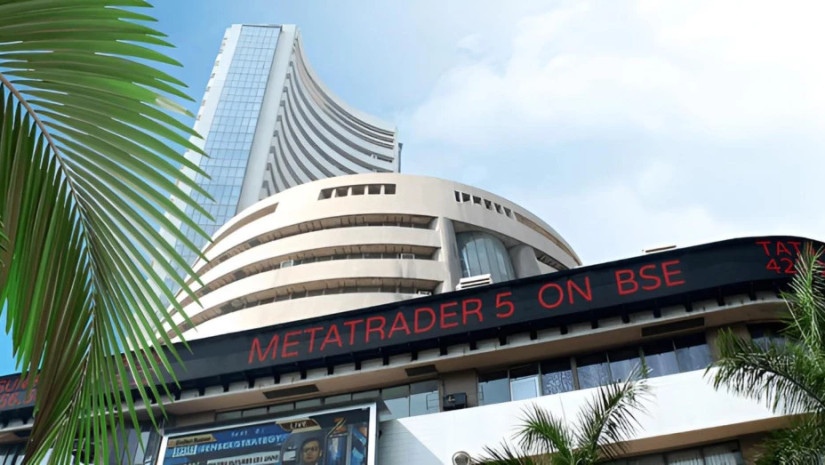India’s stock market is booming as investors take a chance on one of the few bright spots in a fragile global economy.
The country’s stocks are so hot that India is now home to the world’s fourth most valuable equity market, behind only the United States, China and Japan.
India’s benchmark Sensex index, which tracks 30 large companies, has soared 10% over the past three months, while the broader Nifty 50 index has jumped 11% in that time.
Both indexes hit all-time highs last Wednesday. This week they have shrugged off nervousness over instability in Russia, where armed mercenaries staged, and quickly called off, a rebellion last weekend.
The revolt fueled concerns that unrest in the world’s second biggest exporter of oil — and a major supplier to India — could upend the global energy market, heaping more pain on economies around the world.
Both Indian indexes have recently far outperformed their European peers. Since late March, the United Kingdom’s FTSE 100 (UKX) has risen just 0.8%, and France’s CAC 40 (CAC40) 2.9%. The pan-European Stoxx Europe 600 index has climbed 2.9%. The S&P 500, meanwhile, has gained 10% over the same time period, staying 8.8% below its record high reached in 2022.
The total value of Indian equities has hit $3.5 trillion, greater than the value of Europe’s two biggest stock markets, in the UK and France, according to data from Refinitiv.
India’s strong performance stands in “striking contrast to Europe,” Sher Mehta, director of macroeconomic research and econometrics at consultancy Virtuoso Economics, told CNN.
“[In Europe] recession fears have been on the ascendant amid concerns of … persistently high inflation resulting in continued monetary tightening,” Mehta said. Those fears and the interest rate hikes have discouraged private consumption and investment in the region, he added.
The 20 countries that use the euro slipped into recession around the turn of the year, and there are signs the downturn could extend into the current quarter.
Bright prospects
The surge in Indian equities is a reflection of the strength and potential of the country’s economy, according to economists and fund managers.
The International Monetary Fund expects India to outperform all major emerging and advanced economies this year, logging 5.9% growth in gross domestic product.
India recently overtook China to become the world’s most populous nation, with 1.43 billion people, representing an enormous pool of potential workers and consumers that companies — both in India and abroad — can tap into.
“There is a growing category of the largely urban middle class who have increasing levels of disposable incomes,” Sohini Kar, associate professor of international development at the London School of Economics, told CNN.
“This is quite a heterogeneous group of which some at the top end are able to afford luxury goods, foreign holidays… while at the bottom end, it might be about being able to afford a motorcycle or family car,” she added.
Earlier this month, Airbus (EADSY) agreed to supply 500 jets to Indian airline IndiGo, landing the biggest aircraft order in the history of commercial aviation.
Pieter Elbers, IndiGo’s chief executive, said the airline was keen to capitalize on the “rising disposable incomes” in India, which were adding “millions of first-time flyers to a booming aviation market.”
In another vote of confidence in Indian consumers, Apple (AAPL) opened its first physical store in the country in April.
India’s healthy economic outlook was also cited by credit ratings agency S&P Tuesday as a key reason for its more upbeat view of the country’s financial sector.
Courting investment
Indian Prime Minister Narendra Modi has been working to attract more foreign investment. He met with US President Joe Biden last week in Washington in a visit intended to boost defense, trade and technology ties. It followed a similar meeting with Australia’s prime minister in May.
Investors appear receptive. Last year, Indian-listed companies raised $18.7 billion via IPOs and other equity offerings, more than their counterparts in the UK, Japan, Germany or France, according to data from Dealogic.
Apple has also been ramping up its manufacturing in India after suffering supply chain snags in mainland China, and has pledged further investment.
But according to Lorenzo La Posta at Momentum Global Investment Management, there is a fly in the ointment. The portfolio manager thinks the currently high equity valuations of Indian companies don’t provide “an attractive entry point for investors.”
La Posta gives the example of the MSCI India Index, which covers large and mid-sized companies.
Based on its average ratio of stock prices to company profits — commonly used to determine whether a share is over- or undervalued — Indian equities trade at a premium of about 70% compared with equities in broader emerging markets and at a premium of around 10% versus US peers, he said. The higher the ratio, the more likely a stock is overvalued.
Still, La Posta said, India presents a “massive opportunity” for many companies on the back of its huge population, expanding manufacturing sector and an influx of discounted Russian oil to power its economy, among other factors.
“The Indian equity market is the classic example of ‘expensive for a reason’,” he said.
The rally in Indian stocks started soon after blistering allegations against the country’s billionaire industrialist, Gautam Adani, drew global attention to India for less benign reasons.
The claims, made in a January 24 report by a US short-seller, triggered a firesale of shares in Adani’s companies. Although the stocks have risen since their late-February lows, all are still trading below their levels before the report came out, CNN reports.
















